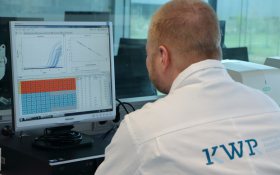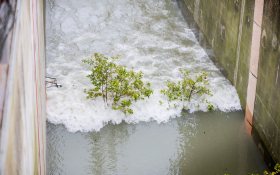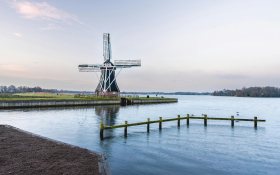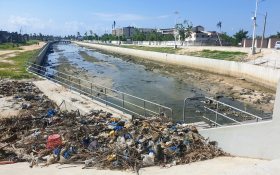Dutch-Ghanaian student team jointly worked on complex issues of Volta Delta, Ghana
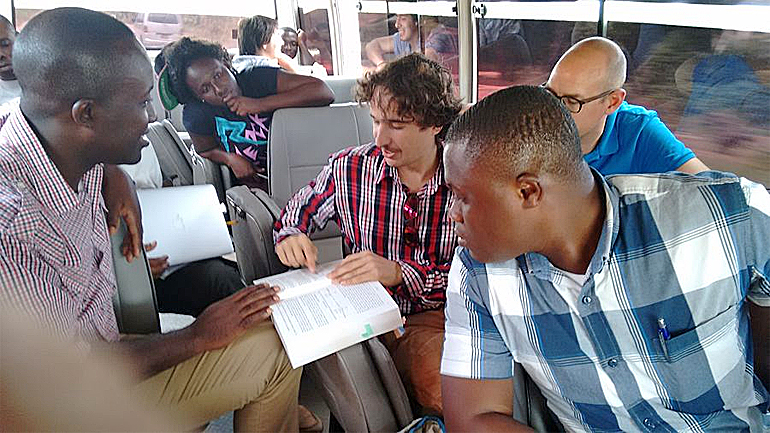 Students and teachers from Delft University of Technology visited the Volta Delta and worked together with Ghanaian students of KNUST, Central University and University of Ghana, on integrated solutions for the complex issues of this river delta in Ghana.
Students and teachers from Delft University of Technology visited the Volta Delta and worked together with Ghanaian students of KNUST, Central University and University of Ghana, on integrated solutions for the complex issues of this river delta in Ghana.
The full week meeting included workshops and site visits in the river delta, focussing on a more strategic long-term response to climate change rather than on isolated engineering solutions. The visit was hosted and facilitated by the Ghana Wing of the Delta Alliance network organisation.
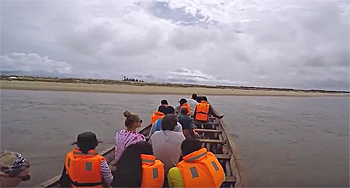 Waterbed-like reactions
Waterbed-like reactions
The Volta Delta is experiencing interacting problems due to a combination of climate change, coastal erosion, intensive urbanization and poor land use planning.
One of the major problems in Ghana is severe coastal erosion that affects coastal communities. Engineering solutions, such as the construction of groins and revetments have stabilized parts of the coast, but also blocked access to the beach, which is affecting traditional marine fishing activities, and have led to increased erosion of neighbouring areas.
In the lagoons, industrialization of salt mining and the development of intensive agriculture and unplanned urbanization put pressure on the delta’s ecosystem.
This competes with the traditional way of living of coastal communities and exaggerates the already poor livelihood of communities as a result of low fishing and agriculture harvests.
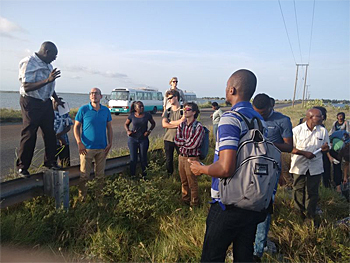 Guiding principles
Guiding principles
The workshop funded by the Delft Deltas, Infrastructure and Mobility Initiative (DIMI) and Delta Alliance sought to improve the understanding of the complex challenges of the Volta delta and to develop guiding principles to support an integrated development that balances needs of local communities and economic development.
During one of the workshops, the Delft – Ghanaian student group developed long-term strategies based on the option of a managed retreat and relocation of the most vulnerable communities, a hold the line strategy by improved coastal protection, and a dynamic coast strategy, in which the sandy coast is maintained according to its natural dynamics.
Although the workshop did not aim to develop a comprehensive master plan, it helped to better understand the complexities of a delta that is urbanizing rapidly and that is threatened by climate change.
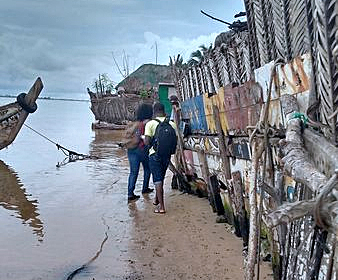 Key findings
Key findings
One of the key findings of the workshop is that it is absolutely necessary to better understand the natural dynamics of the delta and to better understand how the coastal system reacts to climate change.
Additionally, there is a strong need for both strategic long-term planning and new governance structures on the level of the delta to manage urbanization, coastal protection and other economic developments and the development of new economic activities to support a sustainable livelihood of the coastal communities.
Lastly, the lack of spatial planning and the community-focused culture brings in an element of complexity.
The workshop was funded by the Delft Deltas, Infrastructure and Mobility Initiative (DIMI) and Delta Alliance. A follow-up meeting will be held in Delft, the Netherlands, in April 2018.
This news item was originally published on the website of Delft University of technology and Delta Alliance.
Read also on this website
● Delta Alliance hosts free webinar on adaptive management for river deltas, 28 June 2017
● River basin management of Volta delta focusses on balancing preservation and development, 17 March 2017
● Adaptive coastal management casts new light on construction of large flood barriers, 2 February 2016
● Country: Ghana
● Expertise: Enabling Delta Life
More information
Delta Alliance – Ghana Wing
c/o Delta Alliance
Wageningen, the Netherlands
+31 317 48 6540
www.delta-alliance.org/wings/ghana-wing
Delft Deltas, Infrastructure and Mobility Initiative (DIMI)
c/o Delft University of technology
Delft, the Netherlands
www.tudelft.nl/infrastructures
